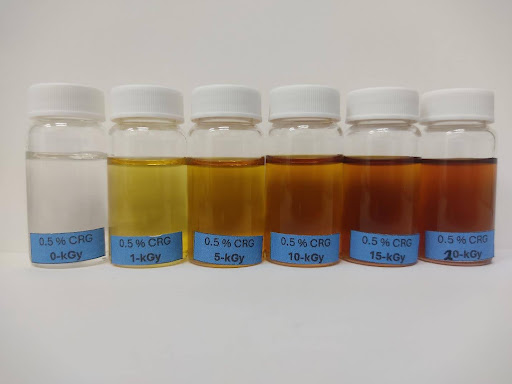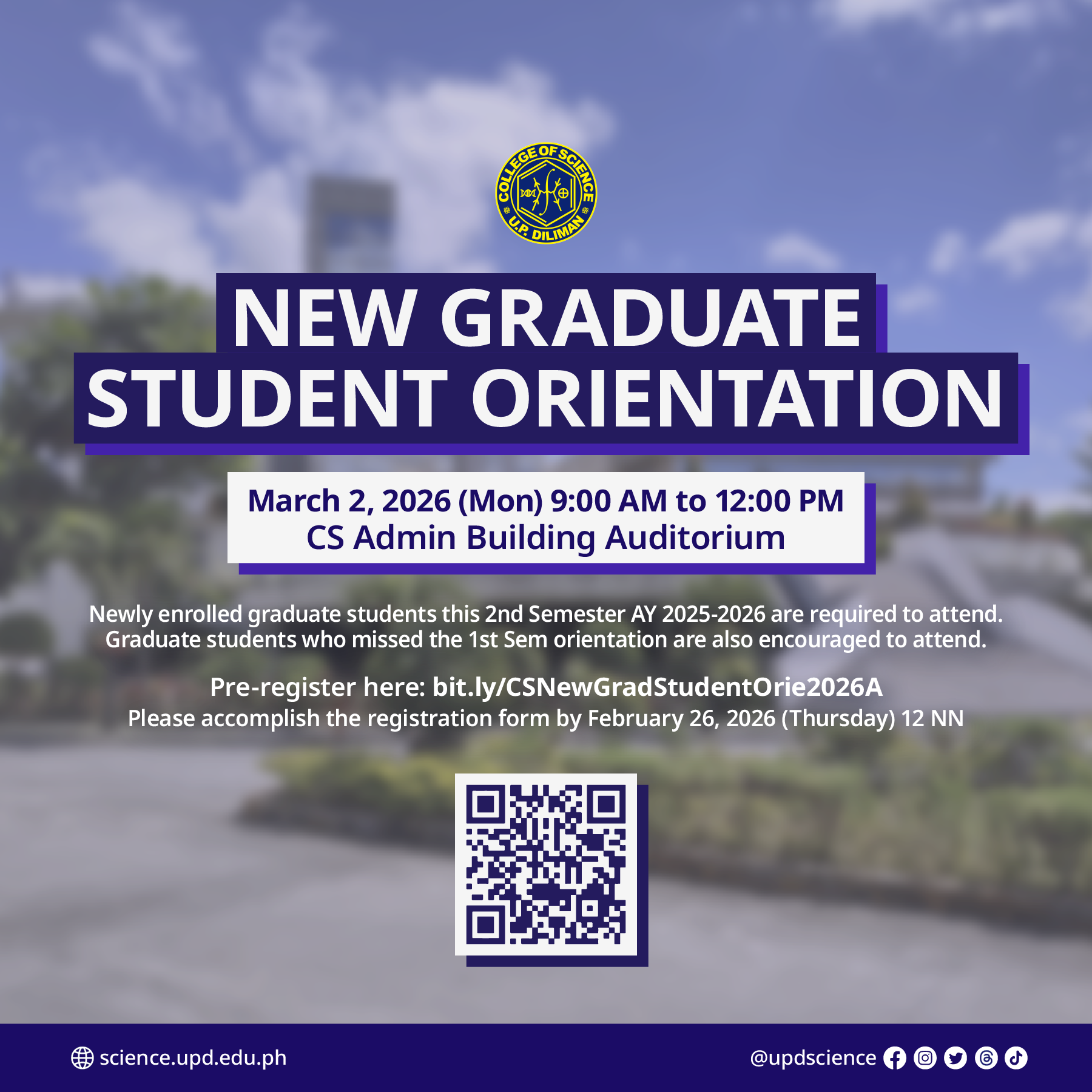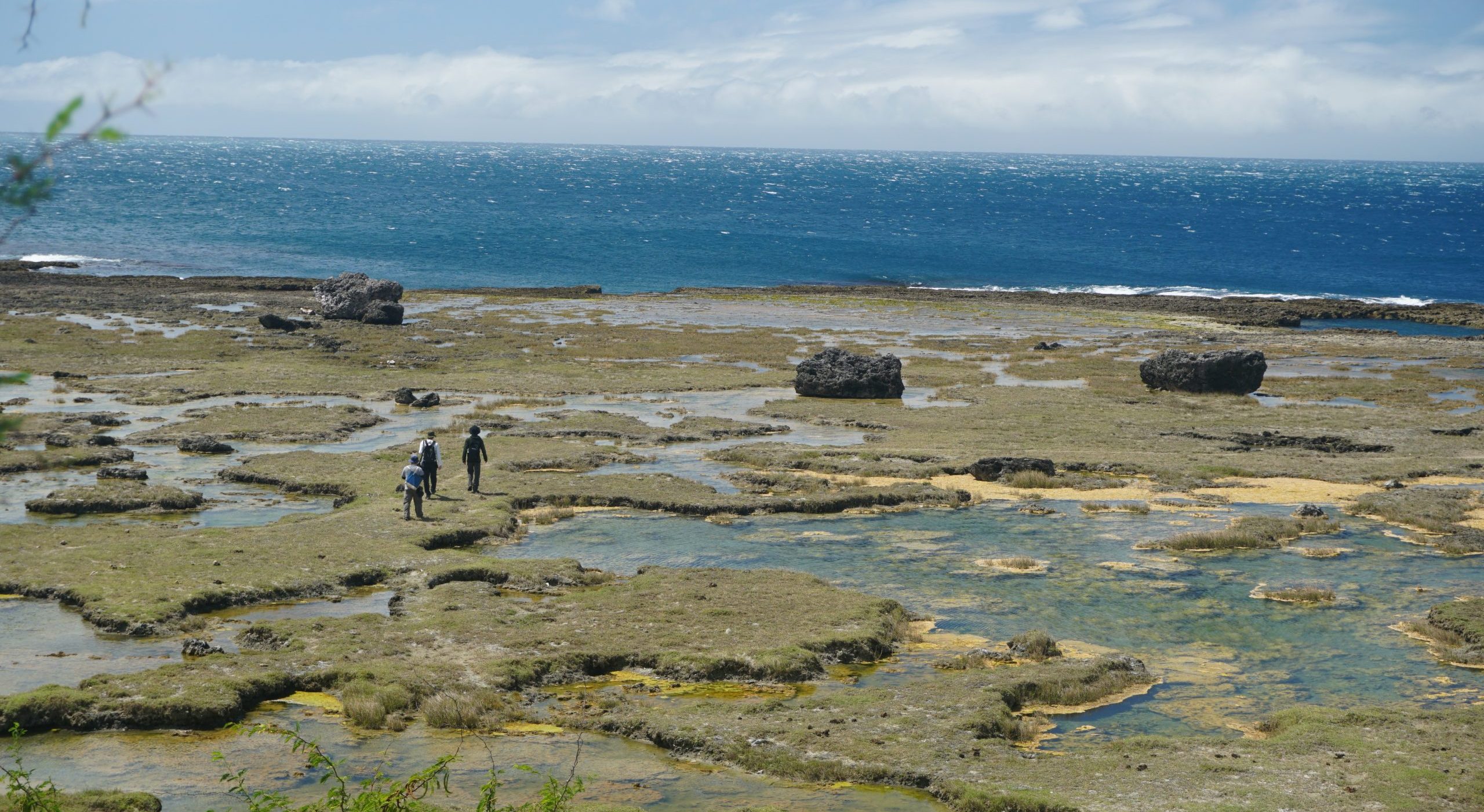News & Events
Nagsulong ang mga scientist mula sa University of the Philippines–Diliman College of Science (UPD-CS) ng greener approach sa silver nanoparticle (AgNP) synthesis sa pamamagitan ng paggamit ng gamma irradiation kasama ng natural na seaweed-derived biopolymer ι-carrageenan. Bagaman dati nang naiulat ang mga rutang gamma-radiolytic para sa pagbuo ng AgNP, ang mismong papel ng ι-carrageenan sa pag-stabilize at pag-impluwensya sa pagbuo ng nanoparticle sa ilalim ng proseso ng radiolysis ay nanatiling hindi pa ganap na nauunawaan.
The College of Science Office of the Associate Dean for Academic Affairs (OADAA) invites all newly enrolled graduate students to this semester's New Graduate Student Orientation on March 2, 2026 (Monday) 9:00 AM to 12:00 PM at the CS Admin Building Auditorium.
Nakita mo na ba ang mga malalaking tipak ng bato, ang ilan ay kasinglaki ng malaking trak, na nakakalat sa mabatong baybayin ng Pasuquin, Ilocos Norte? Ang mga dambuhalang bato ay makikitang nakapatong sa taas ng nakaangat na reef platform na malayo sa dagat. Pinapaniwalaan na ang mga ito ay bahagi or piraso ng isang sinaunang bahurang koral (ancient coral reef) na napunit at naihagis papaloob ng lupa, dala ng matitinding alon.
Large boulders, some weighing as much as a large truck, are scattered along the rocky coastline of Pasuquin, Ilocos Norte. These enormous boulders, which sit on an uplifted reef platform far from the sea, are not random. They are fragments of an ancient coral reef that were torn from the reef and hurled inland by extreme waves. This unusual sight piqued the curiosity of geologists from the University of the Philippines – Diliman College of Science’s National Institute of Geological Sciences (UPD-CS NIGS).
Scientists from the University of the Philippines–Diliman College of Science (UPD-CS) have advanced a greener approach to silver nanoparticle (AgNP) synthesis by using gamma irradiation in combination with the natural seaweed-derived biopolymer ι-carrageenan. While gamma-radiolytic routes for AgNP formation have been reported previously, the specific role of ι-carrageenan in stabilizing and influencing nanoparticle formation during radiolysis has remained largely underexplored.
Matagal nang sangkap ng kaunlaran ang kimika sa iba’t ibang larangan, mula sa agrikultura at pangangalagang pangkalusugan hanggang sa enerhiya at imprastruktura. Ang mga inobasyon nito ang nagtutulak sa paglago ng ekonomiya, nagpapabuti sa kalidad ng buhay, at tumutulong sa pagtugon sa mga pangunahing pangangailangang panlipunan. Gayunman, may dalawang mukha ang kimika. Maaari itong lumikha ng kapaki-pakinabang at mapaminsalang mga sangkap at magamit sa mabuti o masasamang layunin.




